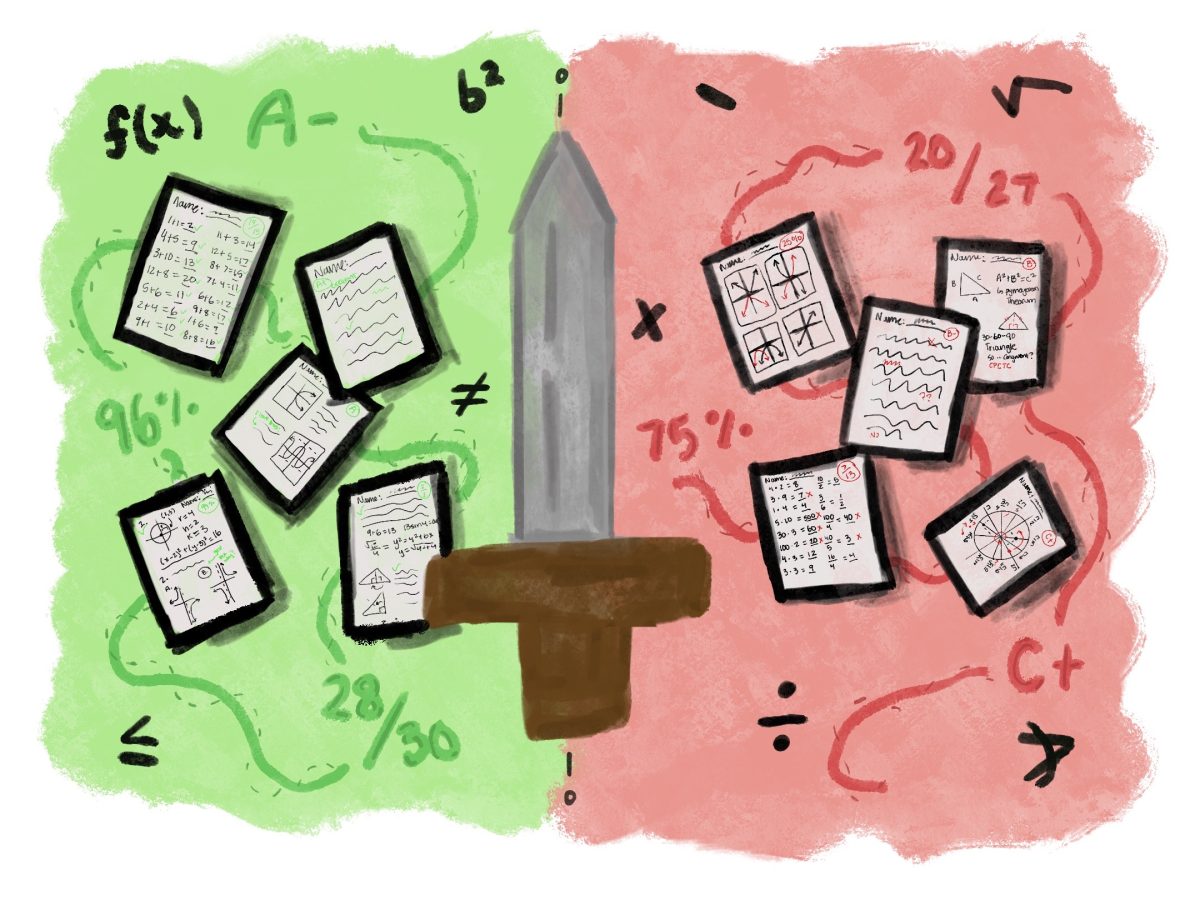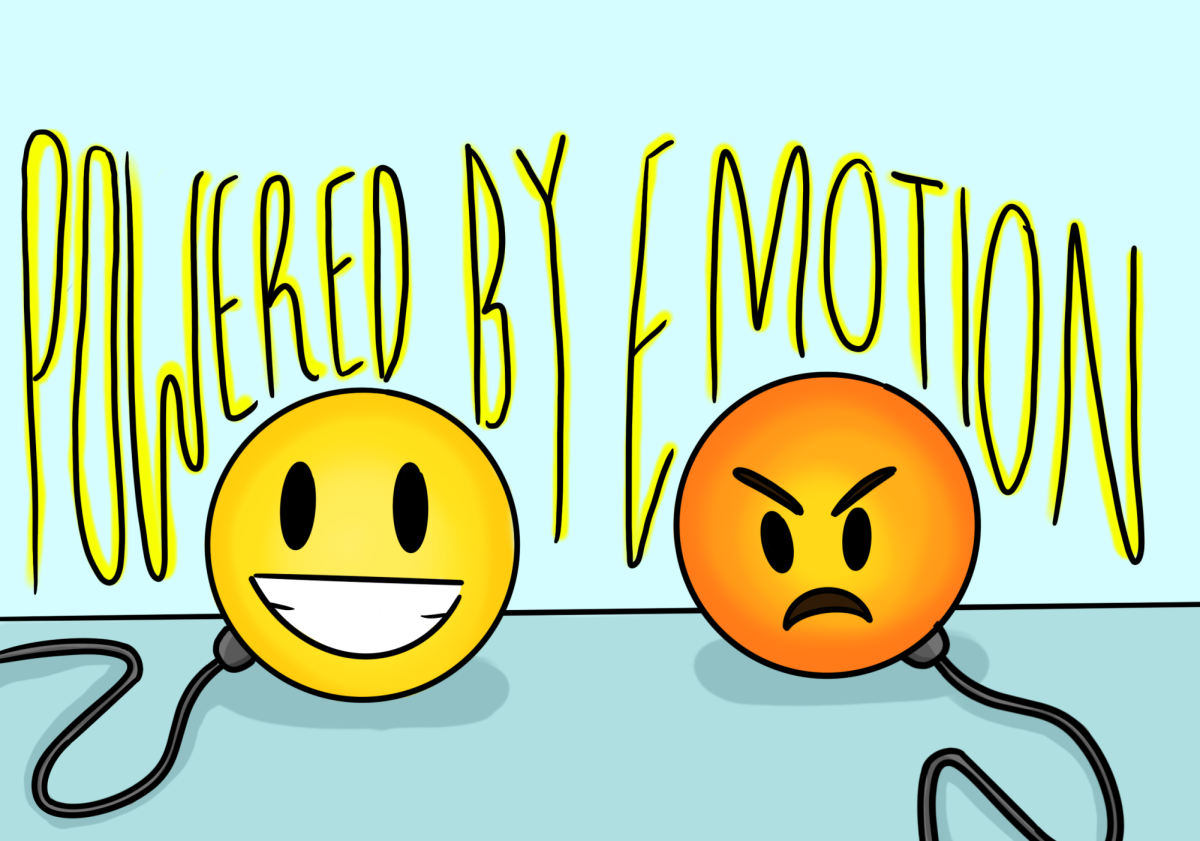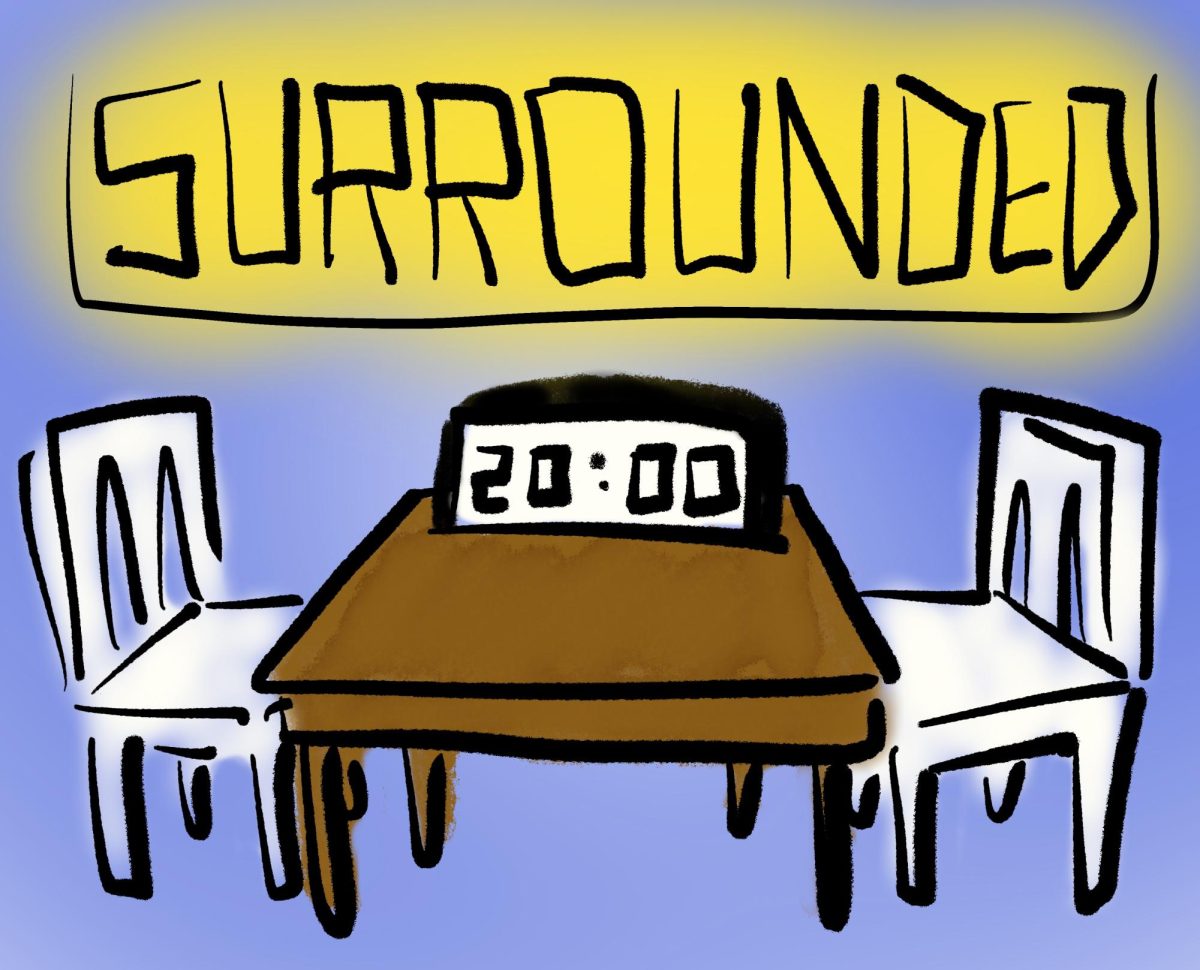Ever since I can remember, I’ve loved math. Something about solving algebraic equations or graphing trigonometric functions has always been fun for me. Whenever I have a long list of homework to complete, my math problems are the first things I tackle. Because I enjoy the work that I’m doing so much, I’m more motivated to study and I put a lot of time into completing every review guide and homework packet assigned. One of my favorite parts of math class is taking a test. There’s nothing better than the feeling of understanding a concept. Confidently working through questions, knowing I’ve studied hard to master all of the material and that my studying has paid off.
When test scores come back a couple of weeks later, I’m always anxious to see what I got. Even though I am confident in my answers, I need to see physical evidence that I was correct. Receiving a good grade makes me overjoyed. I’m not just satisfied with the numerical value of my grade, but I’m also proud of myself. It’s not always easy for me to balance schoolwork with outside activities, like theater, but I get it done. I worked extremely hard to get the score that I did, and I have something to show for it. I feel good about myself, that is, until I hear two dreadful words: test retake.
Test retakes have never quite sat right with me. The idea that somebody who originally received a bad score on a test could retake it to have almost the same score as me just doesn’t seem fair. It makes me question why I even study in the first place if others who may not have put in as much effort as me end up with the same results as I do. It doesn’t feel like my hard work is being recognized, and quite frankly, it’s very discouraging.
Although I don’t feel like retakes are fair, I do recognize the benefits of having them. There are many reasons why a student may not do well on a test. Some people have debilitating test anxiety, while others may be dealing with situations at home or in school that affect their headspace. Junior Maggie Beeson utilized the retake system multiple times during her Precalculus class last semester. She noticed that not only were test retakes helpful for her, but also for many of her classmates.
“There’s a lot of different factors that play into test taking and some people are just not as good, even though they study the material twice as hard as other students who get it well,” Beeson said. “I think retaking tests creates a safer environment for kids that get stressed out in large rooms with a lot of people or in pressure situations.”
Beeson is not the only student who has taken advantage of test retakes. Claire Theiss, a CHS sophomore, relied on retaking tests a lot during her freshman year Geometry class.
“I definitely think that [test retakes] have helped me get my grade up in a way that’s pretty simple,” Theiss said. “They’re also good to just get to know the stuff you didn’t know before.”
The current math retake policy offered at CHS is that students can retake a test to get up to 90%. They have to have turned in all of their homework from that unit and only have about two weeks after the test is graded to complete the retake. Last year, the policy offered was that students could retake for up to 100%, which has since been reduced in an attempt to make everything more fair. Luciana Qu, who teaches Algebra II and Precalculus at CHS, stresses the importance of students understanding everything that they are being tested on. She feels that retaking tests gives them the opportunity to master key concepts revisited numerous times across various courses.
“There are benefits to understanding the material because usually it’s related to other units subsequent to the current one,” Qu said. “Because math is so cumulative, understanding those basic foundations is really, really important for moving forward and understanding more advanced math.”
Though it might seem like the current test retake policy is a reasonable solution for helping students learn what they need to know, there are many faults within the system. For one thing, test retakes don’t accurately represent what life is like outside of high school. In the real world, there will be things that people naturally struggle with more than others, and they won’t have retakes to fall back on. If a student chooses to pursue a higher education, there are no test retakes in college. What you get is what you get, and by having a retake system in place, CHS is not adequately preparing students for that. Qu also worries that students may be abusing this policy because they know they can get away with it. She fears the math department has created an environment where some kids will neglect studying because they know they can just retake the test for a decent enough grade.
“It makes me wonder whether or not we are building the right independent and college-ready skills that students really need,” Qu said. “We want them to be able to learn material in a timely manner, but you know, there are consequences for not learning it.”
When discussing anything involving test scores, it is important to recognize that grades do not define a person. Many students are not planning to go into a math-based career, so how well they did in their high school math class should not affect the rest of their lives. The whole point of tests is to assess a student’s understanding of the material. That being said, because we live under a system where GPAs influence college decisions, there should be some way besides test retakes for students to demonstrate their comprehension.
The most important thing our school can focus on is preventing the need for test retakes in the first place. This starts with strong communication lines between teachers and students. If a student doesn’t understand something taught in class or in the homework, they should be able to reach out to their teacher via email or during office hours and have time set aside to go over anything confusing. Also, if something is going on in a student’s life that may impede their ability to take a test, I think that teachers should be understanding of that, and work with the student to try and move the test to a time when the student can accurately show off what they have learned.
However, no matter how much care teachers and students put into preventing the need for test corrections, tests still come back with scores not to their liking. One thing already offered at CHS as an alternative way to bump up grades is test corrections. I like the idea behind corrections, but I think the process of completing them should be revised. Some students, like Tia Cocciolone, have had trouble in the past attempting to do test corrections.
“I think it’d be helpful if it were more obvious how to do corrections and how to take retakes because I’m trying to do corrections on a test right now, but I have no idea how to do it,” Cocciolone said. “I don’t know what qualifies for corrections rather than a retake, so I don’t really know if it’s going to work.” Clear instructions on how to complete test corrections, as well as step-by-step guides could help improve this experience for everyone.
Other than test corrections, I think CHS math classes should offer assignments outside of mandatory homework that students could complete to boost their grades. These assignments would effectively act as a test for any specific concepts covered in class that the student did not show an understanding of on the test. Since these assignments won’t technically be tests, they would have less of an impact on student’s grades, but still work to improve their overall class performance. If we were to still keep test retakes as an option for students, the maximum percentage a student could earn should be lowered. If test retakes only get a student up to 85% rather than the 90% currently offered, I feel like it would incentivize kids to study more and try harder before tests to understand all the material, since they could only retake up to a B.
The conversation on what to do with test retakes is extremely difficult and nuanced. No matter what policies and systems are decided upon, someone will always be upset. It is difficult to both create something that is equitable, while at the same time ensuring that students are understanding essential concepts. Nonetheless, I feel it is important that CHS continues to explore new options regarding test retakes. By listening to the concerns of students, we can create a solution that better represents the needs of everyone.
















